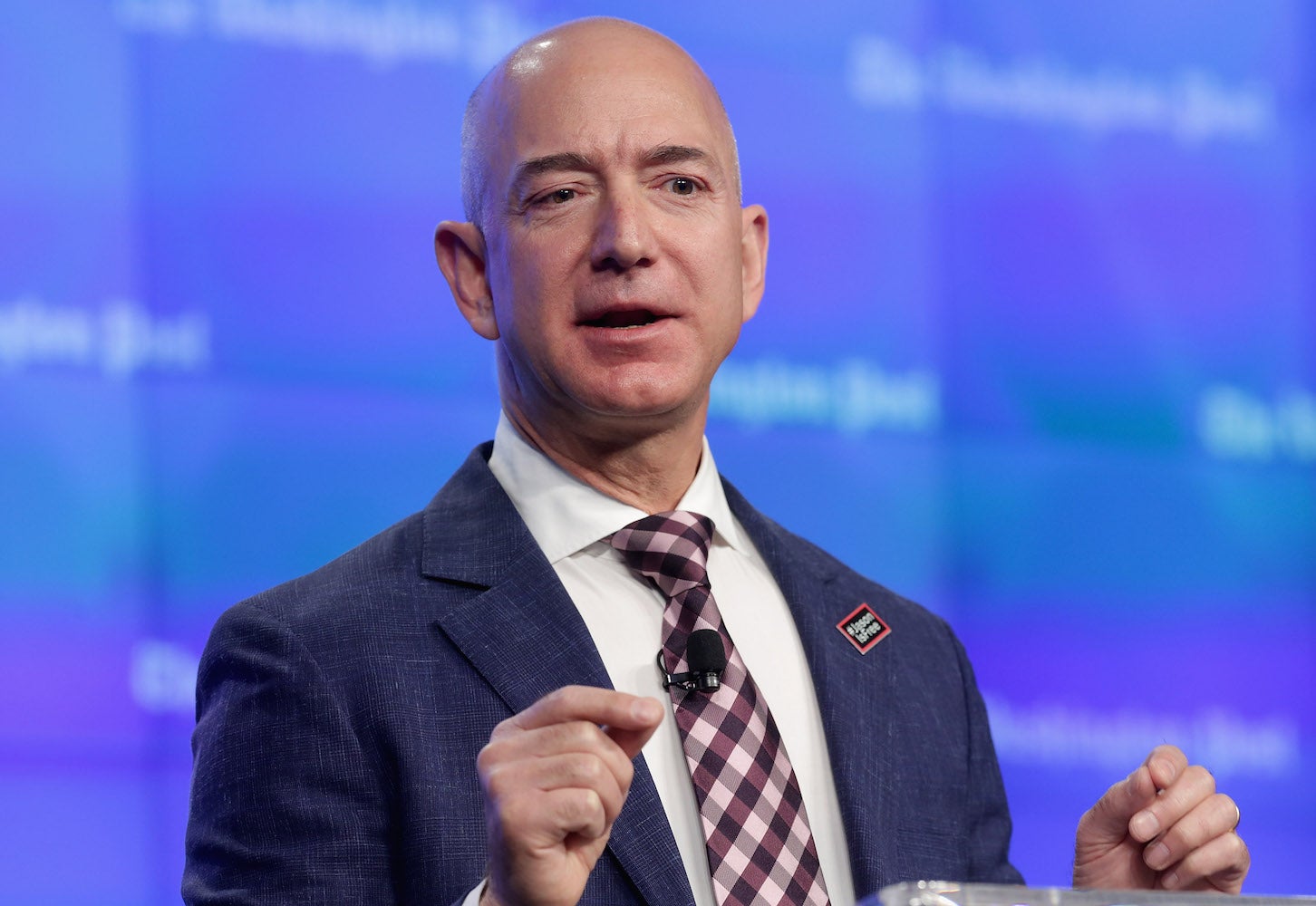Amazon and Uber are proof that leadership still matters
The different paths of Jeff Bezos and Travis Kalanick in the past few days show that the harsh commercial world, in this case, has celebrated the good guy and punished the bad


Your support helps us to tell the story
From reproductive rights to climate change to Big Tech, The Independent is on the ground when the story is developing. Whether it's investigating the financials of Elon Musk's pro-Trump PAC or producing our latest documentary, 'The A Word', which shines a light on the American women fighting for reproductive rights, we know how important it is to parse out the facts from the messaging.
At such a critical moment in US history, we need reporters on the ground. Your donation allows us to keep sending journalists to speak to both sides of the story.
The Independent is trusted by Americans across the entire political spectrum. And unlike many other quality news outlets, we choose not to lock Americans out of our reporting and analysis with paywalls. We believe quality journalism should be available to everyone, paid for by those who can afford it.
Your support makes all the difference.Here’s a tale of two companies, both American, both part of the extraordinary West Coast high-tech boom, both in different ways changing the world, and both in the news right now. One is Amazon, the other Uber.
Amazon is in the news because its founder and largest shareholder, Jeff Bezos, has regained his spot as the second richest person in the world, following Amazon’s takeover of the upmarket food retailing chain Whole Foods. (Number one is Bill Gates, co-founder of Microsoft.)
Uber is in the news for a rather different reason. Its founder and largest shareholder, Travis Kalanick, is taking indefinite leave of absence, following accusations of bullying, sexual harassment, sexual and racial discrimination and so on.
“I need to take some time off of the day-to-day to grieve my mother, whom I buried on Friday, to reflect, to work on myself, and to focus on building out a world-class leadership team,” Kalanick wrote in an email to staff explaining his departure.
The stories are fascinating at a host of different levels. For example, does the takeover of Whole Foods suggest that, for groceries at least Jeff Bezos thinks that the store model can prosper alongside the online model? Or is it that he wants to recycle some of the resources thrown off by the hugely-profitable Amazon into what have come to be called legacy industries? He has, after all, bought The Washington Post, which, love it or hate it, is one of America’s greatest newspapers.
In the case of Uber, does the presumably temporary leave-of-absence of Kalanick, mean the company will be rudderless, for no interim CEO has yet been named? Can it retain its growth record while adopting a more ethical management approach? Or will other competitors take over the lead?
But something for me stands out, and it is that there is a fine line between tough-minded, aggressive business practice, and unethical destructive behaviour. I don’t think we should hold up Jeff Bezos as a painted saint, though I was intrigued by our own story that he had gone on Twitter to get ideas on how he should spend part of his fortune on charitable ventures. He got 15,000 responses within 24 hours. If you are working in one of those huge Amazon distribution hangers, plodding around filling trolleys against the clock, maybe you would feel that charity should start closer to home.
Similarly for all the pile of negatives heaped on one side of the scale against Travis Kalanick, I would set on the positive side the fact that women can afford to get home at night more swiftly and safely than they could on public transport – but of course there have been cases of sexual harassment and rape that have come against the company. One of the great tests of the company will be how it copes with these allegations moving forward.
For some drivers, at least it is better living than before. (Sample of one: the driver who recently told us he made the same money for the same hours as he did on his previous job, but at least now he was warm and dry.)
Personally, the most troubling aspect of the Uber story is that it will confirm to many people that businesses are out to screw you – that the profit motive is incompatible with an ethical approach to business practice. I think we have enough examples of businesses that go rogue and then bite the dust to show that seriously unethical behaviour leads to corporate collapse. The problem is that in the real world managers in businesses are always having to cope with tricky moral decisions, and sometimes expediency, or simply lack of attention, pushes them onto the wrong side of the line.
But, and this is the good news, the different paths of Jeff Bezos and Travis Kalanick in the past few days – one becoming the second richest person in the world and the other being forced to sideline himself from the business he built up – shows that the harsh commercial world in this case has celebrated the good guy and punished the bad. Do, however, remember the qualification above: in the world of commerce goodies are rarely all good and baddies rarely all bad.
Join our commenting forum
Join thought-provoking conversations, follow other Independent readers and see their replies
Comments